Inclusive Innovation Design Challenge Workshops
Co-designed and co-facilitated three inclusive design thinking workshops for engineering students at the School of Engineering Practice and Technology (SEPT).
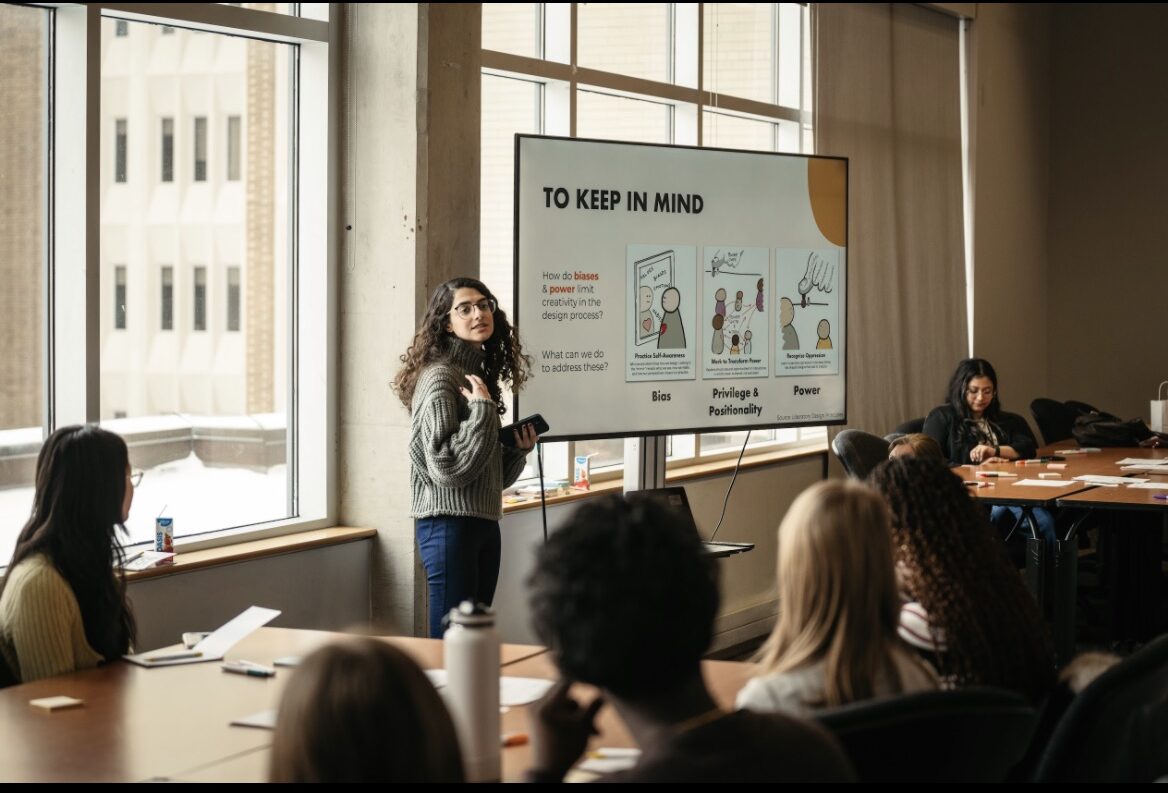
Overview
The Inclusive innovation workshops were inspired by my work as a research assistant working on inclusive learning through equity-based design approaches in engineering education research.
To summarize, the integration of equity, diversity, inclusion, and accessibility (EDIA) principles within engineering is universally recognized for its numerous benefits, including more innovative and inclusive design results. Equity-based design methods, like design thinking, inherently address issues of equity, promote diversity, and foster an inclusive learning environment. For further details on our research, please click here.
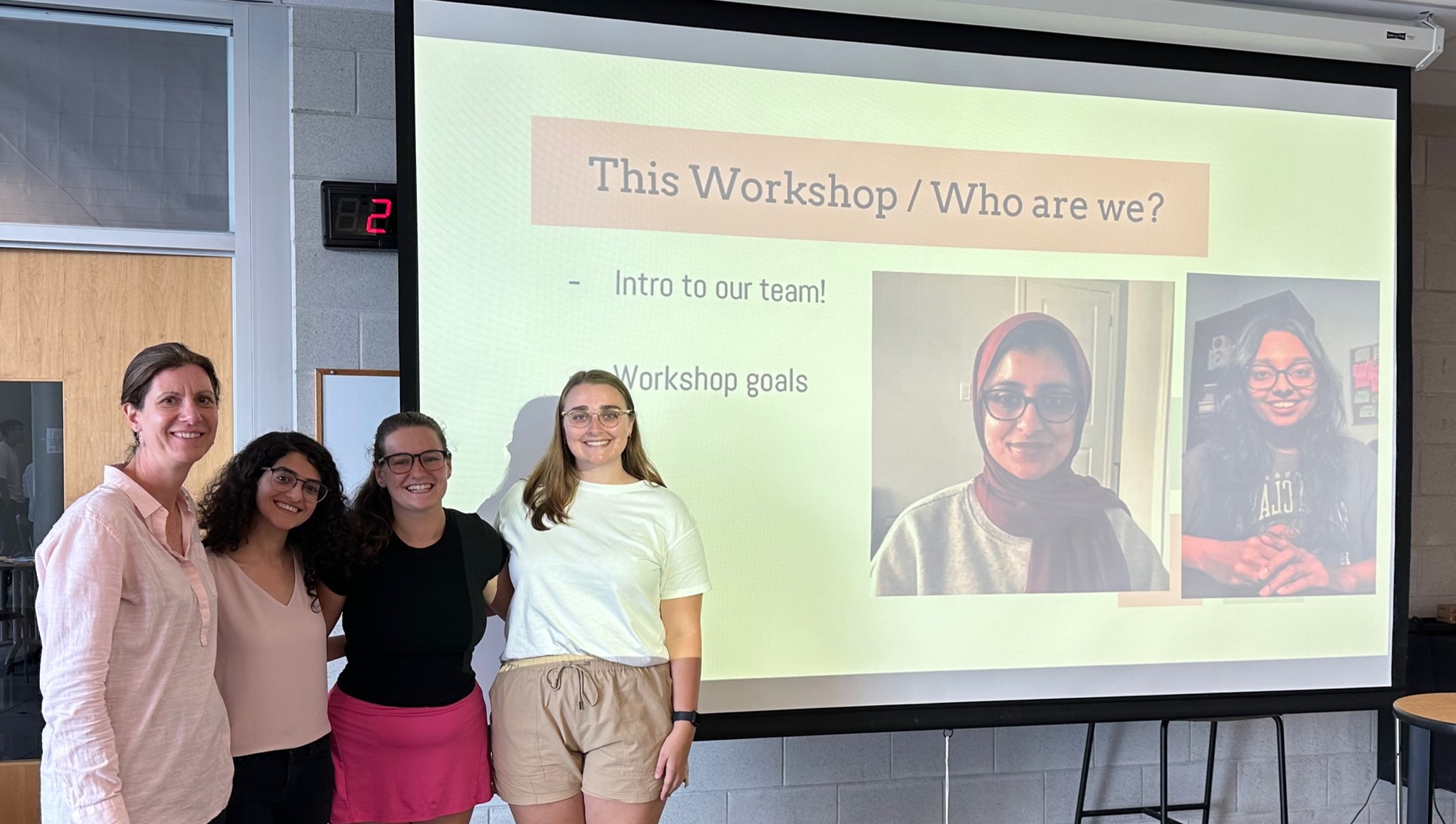
Hence, the workshops were designed to help participants value diverse identities and incorporate equity principles into their engineering work using equity-based design approaches.
Challenge: The challenge was to develop interactive design exercises that would help engineering students become more aware of and engaged with EDIA principles through equity-based design approaches.
Outcome: The work resulted in the creation of three successful workshops with 55 participants, leading to a demonstrated shift in perspective regarding appreciating diverse identities and perspectives in the design process.
My Role:
Workshop Co-Designer & Co-Facilitator
Teammates:
Project Supervisor
Undergraduate Students
Design Students
Participants:
5-80 people
1. Workshop Deliverables
1.1. Workshop 1: Inclusive Design Workshop
The workshop's purpose was to help participants engage in interactive design exercises to become more aware of and engaged with EDIA principles by introducing them to Design Thinking, Co-Design, and Liberatory Design is an extension of design thinking that focuses on breaking habits contributing to inequity in design work.
Here are the following design exercises that I contributed to:
a. Scenario Card
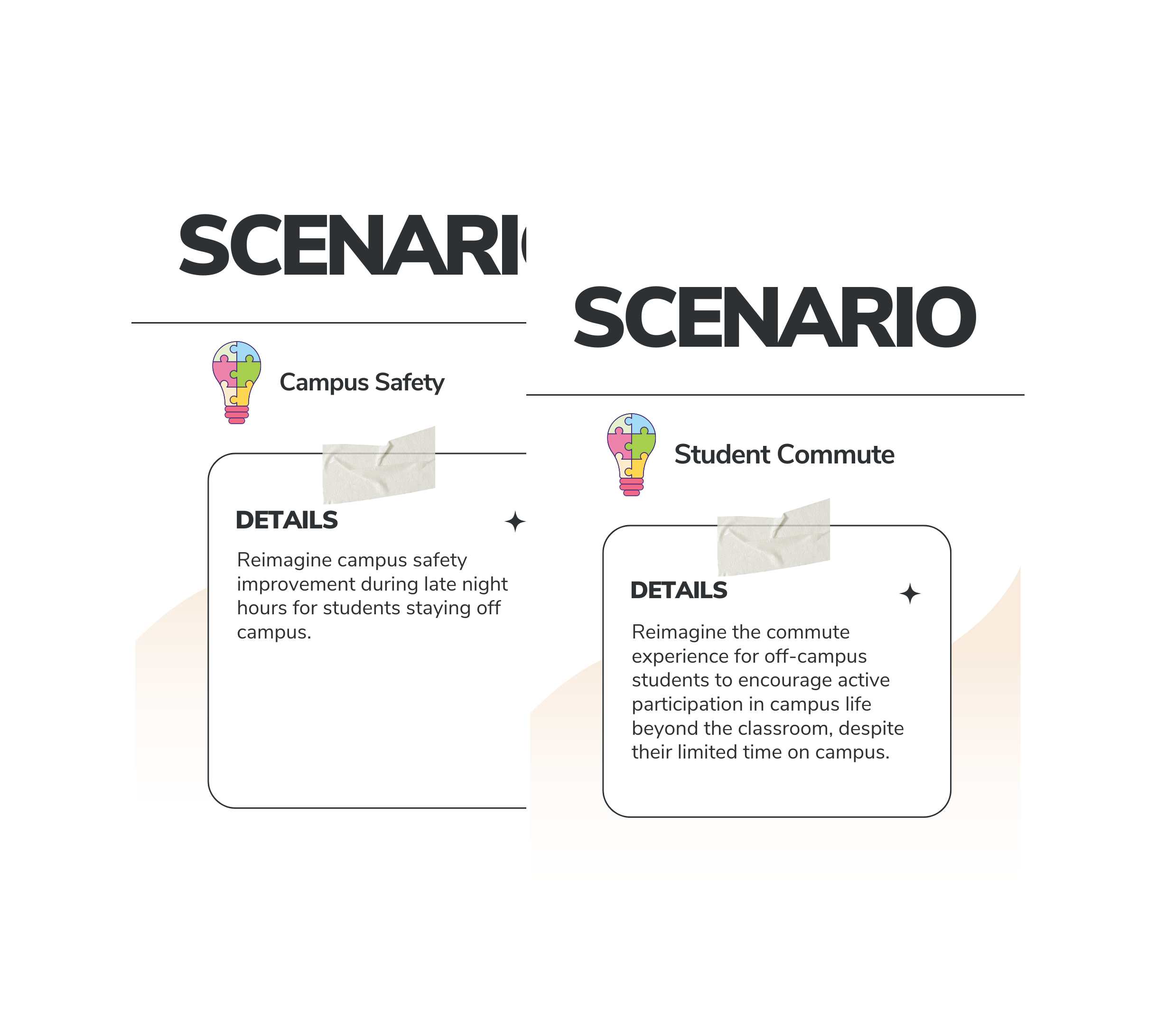
The team engaged in multiple discussions to determine the most relatable challenge for participants, settling on the concept of the students' journey.
Utilizing chatGPT, I developed various scenarios related to students' experiences. After finalizing these scenarios, I crafted a deck of cards on Canva, each focusing on different aspects of student life, including campus safety, commuting, cafeteria services, and professor interactions.
In the workshop's first activity, we invited participants to explore one of these scenarios as their design challenge.
b. Intersectional Design Factor Identity Cards
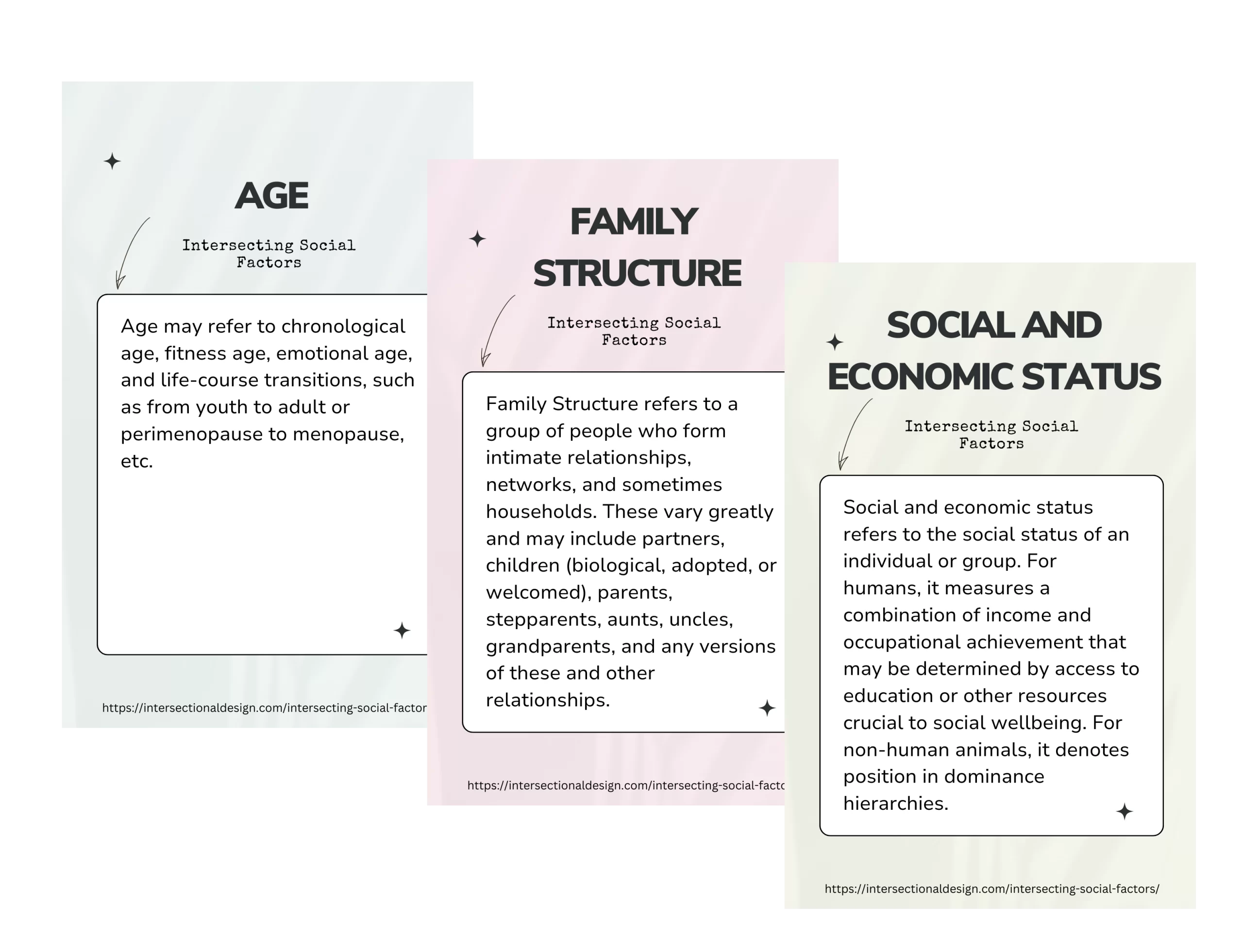
Drawing inspiration from the work of Jones, H., Schiebinger, L., Grimes, A., & Small, A. (2021) on Intersectional Design, I proposed introducing students to the exploration of social and environmental factors. I created a deck of cards that represent various identity facets such as Gender, Language, Family Structure, Disability, Age, Race, etc. These definitions were thoughtfully rephrased with assistance from my team members.
Students were prompted to select 2-3 identity factors to consider when considering their user's journey and challenges.
c. Build Character and User Journey
With Fatima, I redesigned the worksheet templates, Build Your Character and Character's Journey, to ensure they were easy to follow during the workshop, as opposed to the original persona and journey mapping from design thinking, which took longer to complete.
Participants were encouraged to develop a fictional persona based on their own experiences and the team members from the groups. Then, they were to map out the character's journey in the selected scenario and the selected identity intersectional factors.
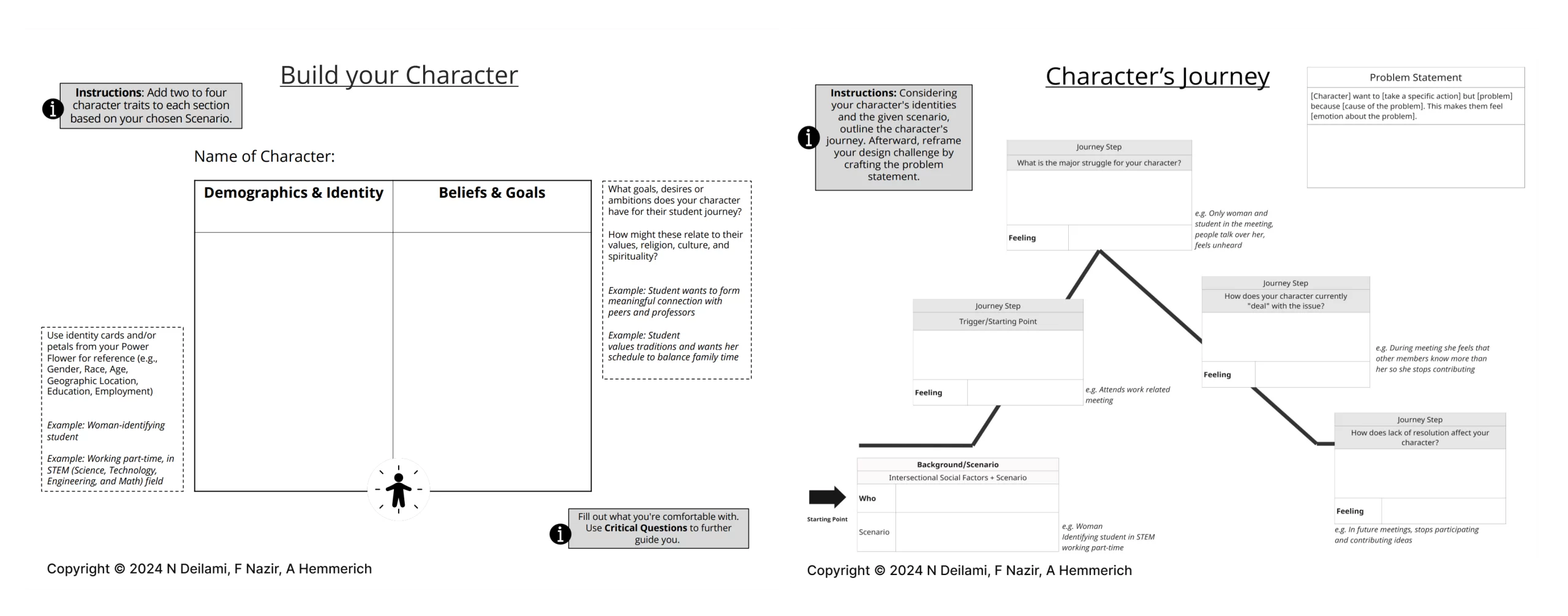
1.2. Virtual Follow-Up Workshop: Cultivating Trust and Creative Confidence
The workshop drew inspiration from Erin A. Cech's 2013 research paper, which explores the impact of engineering values on engineering culture and the diminishing engagement of students with social concepts throughout their engineering education.
The goals of the workshop were:
- Recognize our personal values and engineering values
- Understand how our values impact our relationship with others and the design
As the workshop was virtual, I created the slides using Miro to facilitate collaborative activities.
a. Explore Personal Values
This activity prompted students to think about their top three values from a sample list of values. Interestingly, many of us may not have the vocabulary to express our values in words.
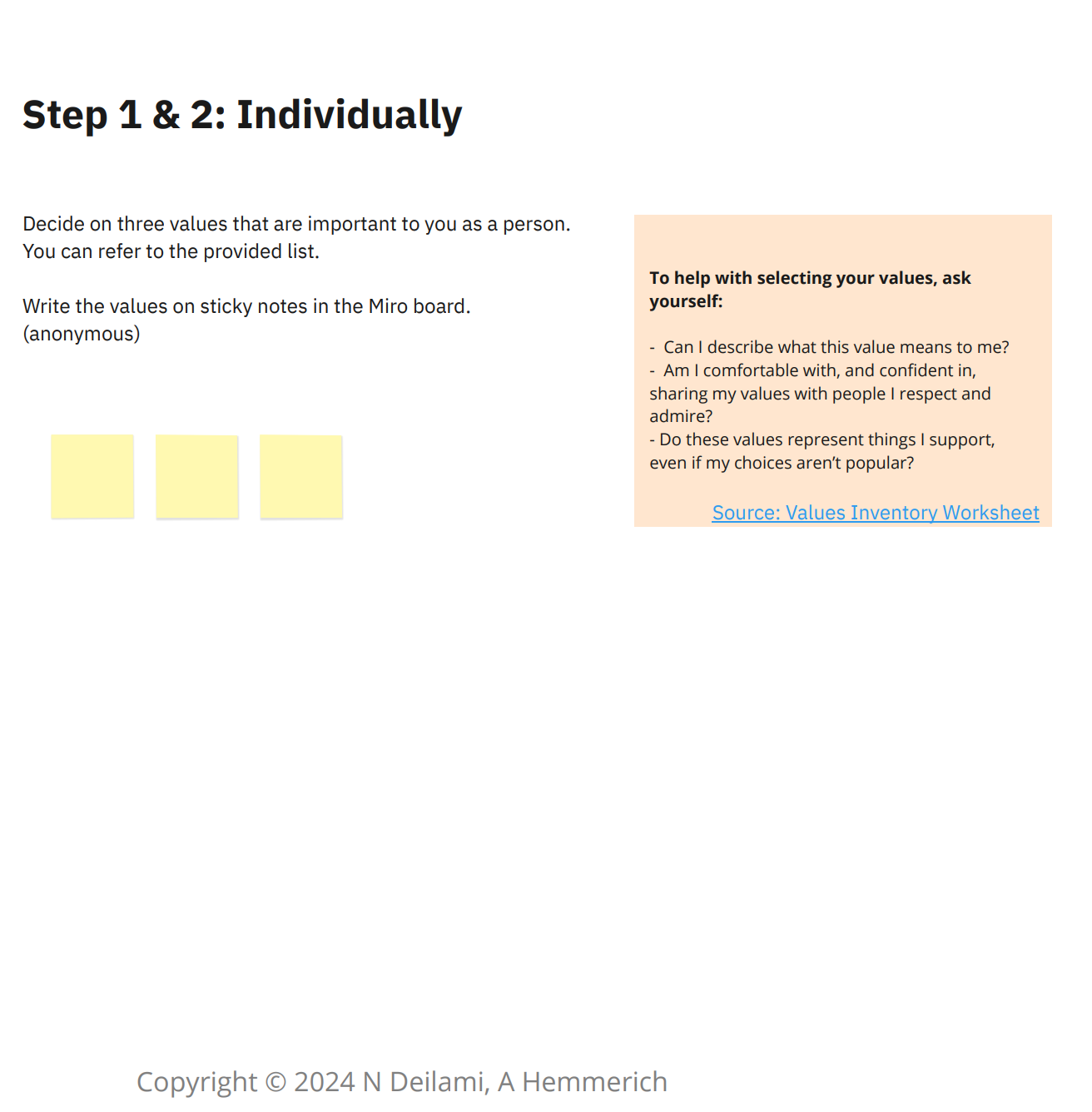
b. Reflect on Value Conflicts
The follow-up activity asked students to think about how their values are supported and compromised in their engineering learning.
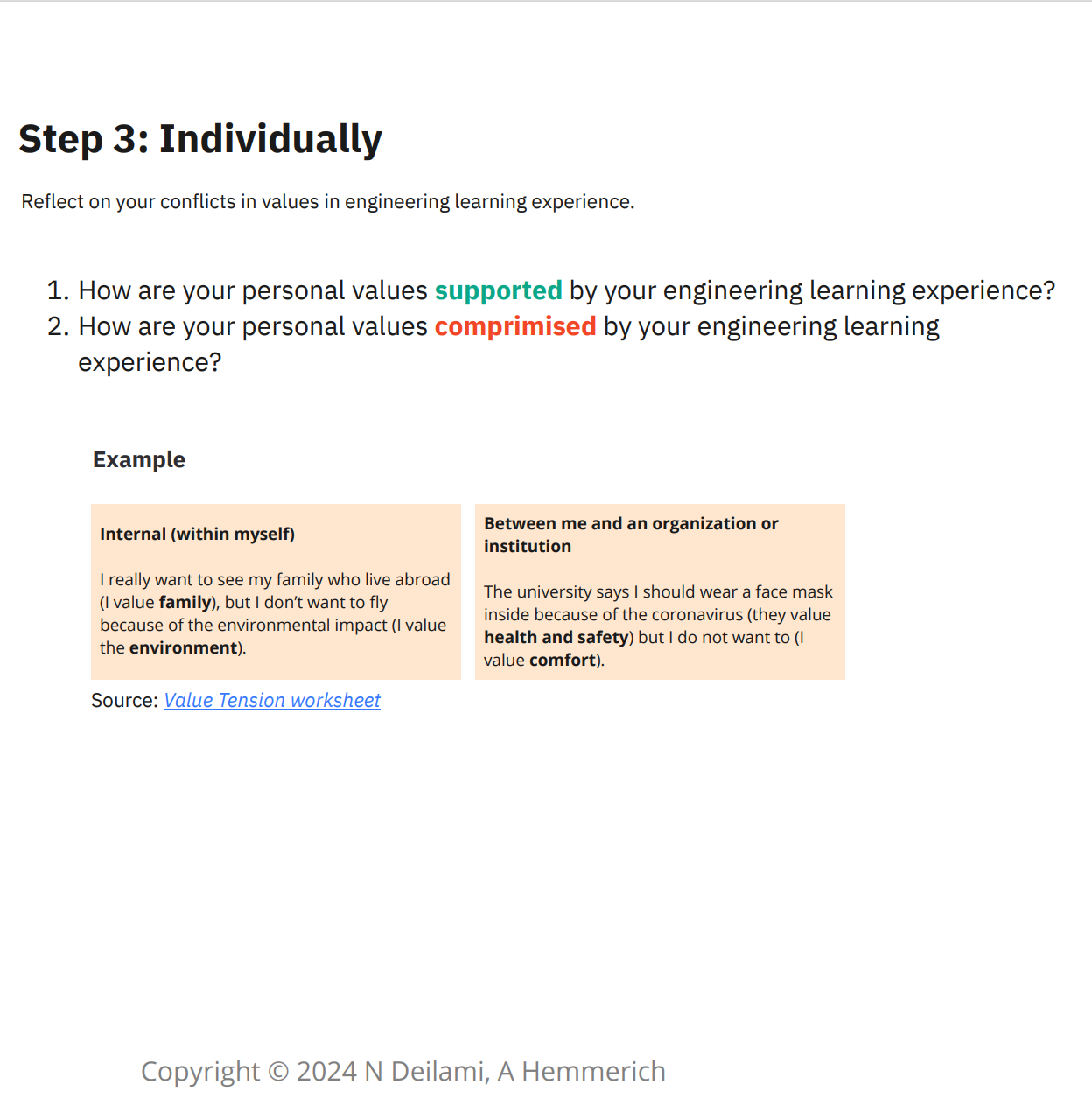
c. Micro-Design challenge
The workshop ended by asking students to think about value conflicts when they are in the space between students and instructors, such as in difficult/complex conversations related to ambiguity.
2. Feedback & Outcome
- 55 students participated
- The post-workshop survey results demonstrated an overall positive experience. They acknowledged a shift in perspective regarding appreciating the values of their unique identities and diverse perspectives in the design process.
3. Next Steps
3.1. Gather Feedback
We are currently conducting focus group studies to understand students' experiences in these workshops and how we can improve them.
3.2. Incorporate Resources into other academic work.
We are also looking into more collaborative opportunities how to share and incorporate these design-thinking activities within McMaster University and other academic programs and instructors.